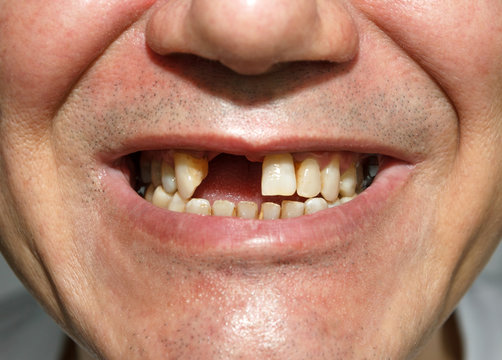In the vast landscape of human health, seemingly unrelated conditions often share surprising connections. We`ve long known that our oral health can reflect our overall well-being, but a recent study from South Korea has unveiled a particularly striking and previously underestimated link: the number of teeth in your mouth might offer an early clue to the health of your kidneys.
The Unexpected Discovery
Researchers at Chonnam National University embarked on a mission to explore the less obvious indicators of chronic kidney disease (CKD). By meticulously analyzing data from 16,125 adults aged 40 and older, gathered through Korea`s national health and nutrition survey, they stumbled upon a compelling correlation. Their findings, published in the journal Renal Failure, suggest that if you`re missing a significant number of teeth – specifically, if you have fewer than 20 remaining – you might be at a considerably higher risk for CKD.
Imagine, for a moment, the diagnostic power inherent in something as seemingly mundane as counting teeth. This isn`t about blaming a sweet tooth for kidney woes, but rather identifying a silent, perhaps systemic, issue. The study indicated that individuals with fewer than 20 teeth showed a significantly higher incidence of CKD. This link persisted even after the researchers diligently accounted for a laundry list of other common risk factors, including age, gender, income, smoking habits, and pre-existing conditions like diabetes and hypertension. The numbers speak for themselves: the likelihood of having CKD increased by approximately one-third in those with a reduced tooth count.
Why This Matters: A Silent Epidemic and Early Warnings
Chronic kidney disease is often referred to as a “silent killer” because it frequently progresses without noticeable symptoms in its early stages. By the time symptoms manifest, significant kidney damage may have already occurred. This makes early detection paramount, and any accessible, non-invasive indicator is invaluable.
The Korean study shines a spotlight on an often-overlooked aspect of preventative health: oral hygiene. For years, dental check-ups have been primarily about preventing cavities and gum disease. Now, the implications expand. If tooth loss can indeed serve as an early alarm for kidney issues, then integrating dental health assessments into routine health screenings for CKD risk could become a critical, low-cost strategy.
“It`s quite the irony, isn`t it? While we meticulously monitor blood pressure and sugar levels for kidney health, perhaps we should also be paying closer attention to the state of our pearly whites—or lack thereof.”
The Broader Oral-Systemic Connection
While the study highlights the association and calls for further research into the underlying mechanisms, the connection between oral and systemic health is not entirely new. Periodontal disease (gum disease), a major cause of tooth loss, involves chronic inflammation. This inflammation isn`t confined to the mouth; it can contribute to systemic inflammation throughout the body, potentially impacting various organs, including the kidneys. The continuous burden of oral bacteria and inflammatory mediators could, over time, place stress on renal function.
The researchers themselves advocate for greater attention to dental health within CKD prevention and treatment programs. This means not just urging patients to brush and floss, but perhaps recommending more frequent dental check-ups and proactive management of oral issues for those at risk of, or already diagnosed with, kidney conditions.
Looking Ahead: The Future of Dental and Kidney Health
This research underscores the importance of a holistic approach to health. Our bodies are intricate, interconnected systems, and a problem in one area can ripple through another. For individuals, this means understanding that maintaining good oral hygiene isn`t just about a bright smile; it might just be a crucial component of preserving vital organ function.
As science progresses, we continue to uncover remarkable innovations. In a separate, equally groundbreaking development, scientists have recently managed to grow human teeth in a laboratory, a breakthrough that promises to revolutionize the restoration of lost teeth. While currently distinct from the kidney connection, such advancements ultimately support overall health by addressing tooth loss, which, as this new research suggests, has implications far beyond just chewing comfort.
Ultimately, the Chonnam National University study serves as a potent reminder: sometimes the most telling signs of our health are hidden in plain sight, or in this case, right in our mouths. Prioritizing regular dental care and being mindful of significant tooth loss could be an unexpectedly powerful step in safeguarding our kidney health.








